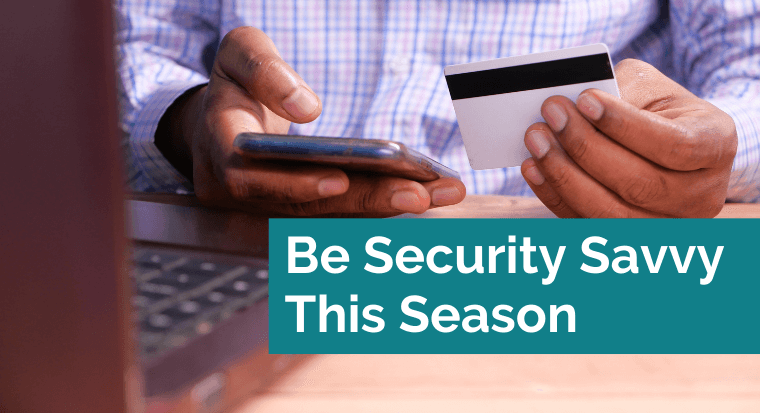
Updated December 2020.
This holiday season, there's more online activity than ever, from shopping to Zoom sessions with family and friends, not to mention remote work and school. But during all this online activity, how much do you think about your computer security? (We know, there are way more important things on your mind these days!) But a security breach could wreak havoc on your business or personal life. Just think, is your password different for every shopping site or app that you use? If not, it should be!
Our top tip is to use a different password for every website, app, and online account. You’ve probably heard this a hundred times, but it is the first line of defense that you have against attacks.
The biggest threat to internet users is password reuse, like having the same (or similar) username and password combination for Amazon, Facebook, and your health insurance website. This issue is frighteningly common — the resource Have I Been Pwned has collected more than 10 billion username and password pairs since 2013. Once attackers breach one of your online accounts, they try the same username and password on sites across the internet, looking for another match.
If one password on one website is breached, then all your other accounts with the same password are vulnerable.
It’s worth reiterating: Don’t use the same password on more than one website or app. Otherwise, your accounts are an easy target for an attacker to gain valuable data like your credit card number and go on a holiday shopping spree that’ll give you a headache worse than any eggnog hangover you’ve ever had!
More Tips to Fend Off an Online Grinch
Here are a few more tips for password security, to help protect your personal information from attacks, scams, phishing, and other unsavory Grinch-like activity:
-
Create a strong password for every website and online account. A password manager like LastPass or 1Password can help you create and keep track of unique passwords for every online account. Be sure to also choose a strong passphrase with 2-factor authentication for your password manager login, and then set it up to automatically generate passwords for you.
-
Choose 2-factor authentication. Most websites and apps offer some means of 2-factor authentication. It takes a few more minutes to set up, but it’s worth it. Do this on as many websites as possible to make your logins more secure.
-
Do not send personal or business-related passwords via email. It may be an easy means of communication, but email is not a secure method of communication.
Have Holly, Jolly Holidays
You have an online footprint consisting of various accounts, email providers, social media, and web browsing history. Essential personal info, like your health records, banking and credit records are online, too. All of this info is valuable and sellable to someone, and the tools they use to steal your data are cheap. All they need to do is get one credit card number and the payoff may be huge. Don’t let that credit card number be yours, otherwise, you won’t have a very jolly holiday.
Be vigilant, especially around the holidays, when there’s an increase in online commerce and communication, and therefore a greater chance that an attacker may succeed in getting the info they want from you.


